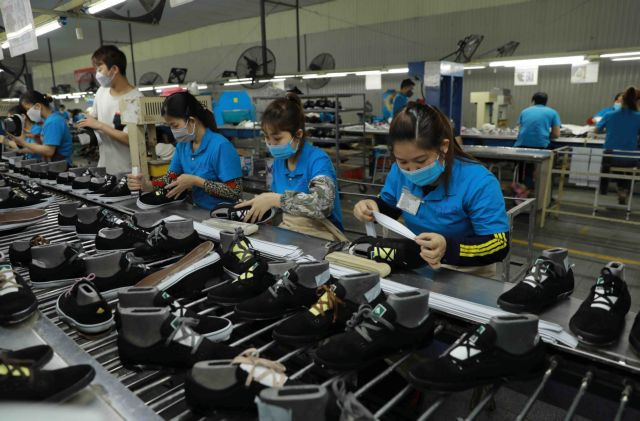
Bui Sy Loi, former Vice Chairman of the National Assembly (NA)’s Committee for Social Affairs, said the labour market has been disrupted due to impacts of the COVID-19 pandemic.
The biggest obstacle to production and business recovery is the low human resource quality, so it is necessary to develop a flexible, sustainable, integrated, and effective labour market, he said, recommending the NA perfect regulations, mechanisms, and policies so that the labour market and the economy can stay resilient to such incidents as the COVID-19 pandemic.
Pham Trong Nghia, a delegate from Lang Son province, said Vietnam is now in the recovery period, during which enterprises are expanding operations and need great labour supply since when COVID-19 broke out, a large number of workers returned to their hometowns, leading to labour shortages in the places with many major industrial parks.
Labour supply and human resource quality in key industrial parks need due attention, he added.
He said economic recovery will be accompanied by labour-related issues. Many jobs in new fields will appear after the pandemic and require workers to have new skills. Given this, workers need to undergo more training to meet new requirements.

This is the best measure for improving the quantity and quality of workers to satisfy post-pandemic economic development demand, Nghia went on.
Echoing the view, delegate Lam Van Doan from Lam Dong province cited statistics as showing that only 26% of the workforce had degrees or certificates in June 2022, which meant over 70% underwent only short-term or general training.
This is a big challenge when Vietnam is striving to boost digital transformation and integration into global value chain, he noted, pointing out that it is highly difficult to seek workers capable of meeting requirements in high-value industries.
The country needs to step up vocational training to form a skilled workforce meeting development requirements in the new context, Doan went on.
Loi also underlined the importance of social housing, which has fulfilled just 41% of the target in the housing development strategy by 2020.
Nghia held that one of the reasons for workers to return to their hometowns during the pandemic is that social security, including housing, has yet to be guaranteed. Social housing, including housing for workers, have been debated much, but the Government still needs stronger measures so that workers can settle down and focus on their jobs.




